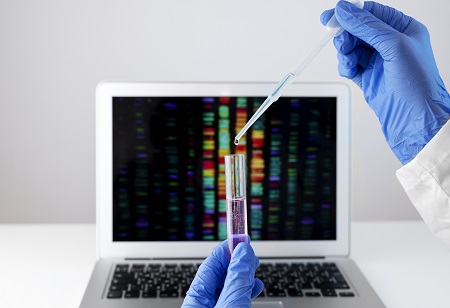India Pharma Outlook Team | Thursday, 22 February 2024

Researchers found more than 275 million previously unreported genetic variants in data shared by nearly 250,000 National Institutes of Health's Global Research Program participants. Half of the genetic data came from participants of non-European genetic ancestry. This cache of unexplored variants offers researchers new opportunities to better understand genetic influences on health and disease, particularly in communities excluded from research. These findings are detailed in Nature and three other papers in the journal Nature.
Welcome to #Taiwan, @SpeakerPelosi! Thank you & the congressional delegation for traveling all the way to show your support. JW pic.twitter.com/Al97hB68aa
— 外交部 Ministry of Foreign Affairs, ROC (Taiwan) 🇹🇼 (@MOFA_Taiwan) August 2, 2022
About 4 million of the newly identified variants are in disease-related regions. Genetic data from the study are available to researchers registered on the Program's data analysis platform, Researcher Workbench.
“As a physician, I have seen the impact of the lack of diversity in gender research in depth. Health disparities and limitations in patient care,” said Josh Denny, M.D., M.S., executive director of the All of Us Research Project and an author of the study. “The All of Us dataset has already led researchers to findings that expand what we know about health – many that may not have been possible without our participants' contributions of DNA and other health information. Their participation sets a course for a future where scientific discovery is more inclusive, with broader benefits for all.”
More than 90% of participants in large genomics studies have been of European genetic ancestry. In an accompanying commentary article in Nature Medicine, NIH Institute and Center directors noted that this has led to a narrow understanding of the biology of diseases and impeded the development of new treatments and prevention strategies for all populations. They emphasize that many researchers are now utilizing the All of Us dataset to advance precision medicine for all.
For example, in a companion study published in Communications Biology, a research team led by Baylor College of Medicine, Houston, reviewed the frequency of genes and variants recommended by the American College of Medical Genetics and Genomics across different genetic ancestry groups in the All of Us dataset. These genes and variants mirror those in the program’s Hereditary Disease Risk research results offered to participants. The authors found significant differences in the frequency of variants associated with disease risk among different genetic ancestry groups compared to other large-scale genetic datasets.